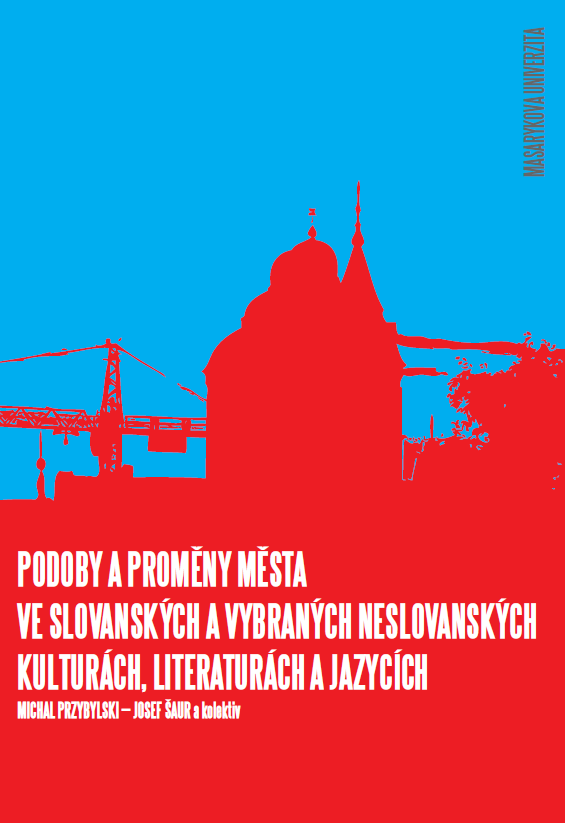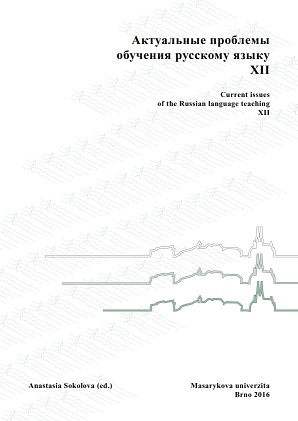
We kindly inform you that, as long as the subject affiliation of our 300.000+ articles is in progress, you might get unsufficient or no results on your third level or second level search. In this case, please broaden your search criteria.















In her chapter on the transcription of the names of Czech cities in Russian texts, Stanislava Adámková covers the problems surrounding the absence of a unified standard for the use of Czech names in Russian texts. The absence of a set standard leads to very arbitrary usage for proper nouns, which makes international communication more difficult. The author aims to summarize the results of research by Czech and foreign experts and, using these together with her own research on practical examples of transcribing the names of Czech cities, to help beginning translators and other participants in the international community correctly use Czech proper nouns in Russian texts. This contribution acquaints the reader with the primary methods for transferring Czech toponyms into Russian, and includes, in a simple table, a guide to transcription of Czech names into Russian.
More...
Some difficulties that may arise in the process of teaching Russian as a foreign language to Polish students with the help of literary texts can be determined by a variety of factors. Subjective factors, which are largely conditioned by the shaping and developing of the students' clip thinking, do not contribute to an effective acquisition of a foreign language. Therefore, it seems reasonable to change our approach to teaching Russian to the students of the homo clipus generation. Similarly, a new approach should be introduced in the process of learning and teaching a foreign language with the use of literary texts. Accordingly, the article will propose certain solutions to this problem and describe workable means of arriving at them.
More...
Classes for Russian as a foreign language need to pay special attention to work with intonation structures (IS) that can be used in different ways depending on the communicative situation or, depending on the function of the IS in context. It is also necessary to take into account features of intonation structures of native language students Russian as a foreign language.
More...
The article discusses the difficulties of interpreting sounding text (educational lectures, specialty) pupils nefrologie within the problems of teaching Russian language for special purposes. Marked subjective difficulties associated with the characteristics of the recipient addressee of scientific-pedagogical discourse, and objective difficulties caused by the complexity of the scientific knowledge and the difficulty of its perception. The necessity to study and describe the linguistic teaching lectures as implementation of scientific-pedagogical discourse in the interest of a scientifically sound and methodologically appropriate system for the formation of skills of perception of lectures for foreign students and its implementation in a modern high-quality textbooks.
More...
The article is concerned with the emotional attitude person representations in syntactic structures. The emotional attitude person is represented in different structures connected with the definite variety of the emotional attitude. The paper deals also with the correlation of the emotional and rational aspects in the emotional attitude structure.
More...
The Russian language is characterized by a big number of parallel forms at the level of verb formation which can be the reason for a lot of problems when communicating. At the same time the problem ofvariability in the Russian literary language at the level the verb formation hasn’t yet been studied thoroughly in spite of the careful attention paid to the verb category research by scientists. In the past there were more parallels ofthis kind and modern period of the development is still marked by some variations in choosing the verb form. This means that the problem of variation is still a topical problem of the linguistics. However there are not strict rules for the usage of these variations of the verb forms and it can lead to some problems when teaching the Russian language. Detailed study of each type of the variation in the history of the language gives an opportunity to propose perspectives of the phenomena development and will help to create general rules for the forms usage. The following article studies double parallels the verb forms have at the modern stage of the Russian language development. First of all these are verb forms of the present tense ending in –ать (for example каплет и капает, машет и махает etc); variative forms of the past tenses in verbs with suffix -ну- (for example (мокнул и мок etc) an the others. When teaching Russian as a foreign language one should pay attention to the usage of these parallel forms in the speech, accompany the teaching with available historic comments; give recommendations about the usage of these forms in accordance with their stylistic and semantic differentiation in the language. We consider this deviation from the norms of the modern language to be the common feature of all forms.
More...